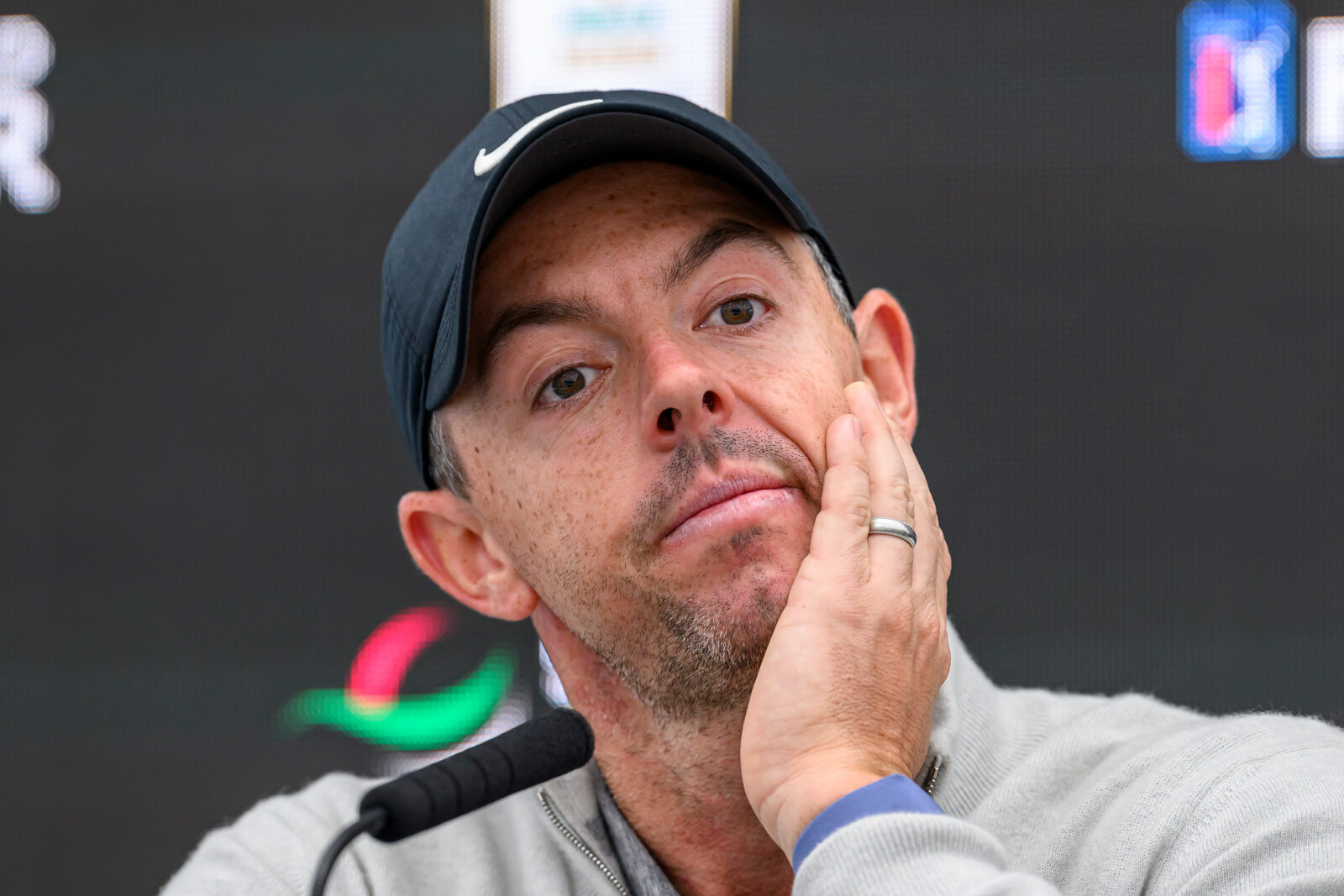[ad_1]
Any golf fan who has spent the week reflecting on Rory McIlroy’s collapse during the last round at the US Open will be left scratching their head about what went wrong. But rather than simply repeating what the initial reports have already said, it’s time we dived deeper into the psychology that’s at play here.
An unsettled buildup
It won’t have escaped your attention that Rory has had something of an unsettled home life of late. After initially filing for divorce, he and his wife then executed the sharpest of about turns. While we don’t want to speculate about what is an intensely personal matter, it goes without saying that the stress and upset that will have been going on behind the scenes will not have contributed positively to the tournament buildup.
Pinehurst is a tough place to play and perform at the best of times; having an unsettled home life that the world’s media seems to take glee in writing about will only make it harder. While the married couple appeared to settle their differences before the tournament started, it’s safe to say that the increased level of media scrutiny will have taken its toll on McIlroy’s mental focus. Hopefully for his sake this is something that can be on much more of an even keel going forward.
The weight of expectation
When a player bursts on the scene the way he did it’s natural to feel like things haven’t quite gone to script when you go 10 years without a major. While he remains one of the world’s elite golfers, he has not (yet) become the dominant force that many predicted he would be. This will likely be stored somewhere in the back of his mind, waiting to come out in those clutch moments where players like a certain Mr. Woods historically never capitulated.
Feeling like he ‘should’ make the shot and then kicking himself twice as hard on those occasions when he comes up short will only serve to put more pressure on the next shot. While no one can say for sure that this is what’s happening, it’s safe to say that the results show us there is a degree of uncertainty in his own ability coming to the fore in high-pressure moments.
DeChambeau’s x-factor
Being chased down by a maverick who seems to bend the laws of convention to suit his own game is never going to be an easy thing to contend with. Whether DeChambeau is packing on extra muscle or deploying his own custom putter, he thinks about the game in a way that is different to everyone else. This makes him unpredictable, hard to read, and someone who you certainly don’t want chasing you down as you work through your last 18 holes.
However, we don’t want to write a piece where we say that McIlroy was overtaken by nothing more than repeated brilliance from another player: he wasn’t. This was a collapse in the purest and simplest form, but it is one that could have been exacerbated by the quality of the man who was chasing him. That said, if you want to win at Pinehurst, there will always be someone hunting you down on the back nine — there is nothing unusual about DeChambeau giving chase in the way he did.
An inherent psychological flaw?
It would be unfair to label McIlroy as a ‘chocker’ or a ‘bottler’ purely because he has already won multiple majors. He clearly has the game to compete at the highest level and has shown that he can get over the finish line. The issue is that these wins were a decade ago and a lot can change in that time.
Winning when you’re younger is in some ways easier than when you’re older and more experienced as you have nothing to fear. If you can handle the pressure of the moment (and he certainly used to be able to) then you play with the freedom and a sense of abandon that comes with youth: you simply do not know or care about what could happen if your game falls apart. You take the course one hole at a time, and you take each hole one shot at a time. You feel like you’re working your way round your local club in a way that is hard to put into words.
Come back to 2024, however, and the performances on the fairway and green show us that Rory may well be overthinking key parts of his game. Whether that’s strategy, stroke play, or club selection we will never know — we can’t get inside his head — but the manner of his US Open collapse is a clear indication that something is not right.
What can he do about it?
Golf is one of those high-pressure games that is about fine margins and very little luck. While playing an online casino game or placing a bet involve large elements of luck, a golfer is out there with nothing but his technique to rely on. If his technique starts to falter because his mind is elsewhere, it can impact every stroke he plays.
Hiring a new coach or caddie is often the simplest thing to do because it forces the problems onto someone else; that may not be enough here. Sports psychology is now all the rage and certainly not the niche pursuit it was in the early 2000’s. Hiring someone like Dr Steve Peters who has helped everyone from Liverpool FC to snooker’s mercurial Ronnie O’Sullivan could be a step in the right direction.
Ultimately the decision is down to one man, and he alone has the ability to find the right path to take his game. A settled home life from here on out will certainly contribute, but a gap of 10 years since his last major shows us that more still needs to be done.
[ad_2]



